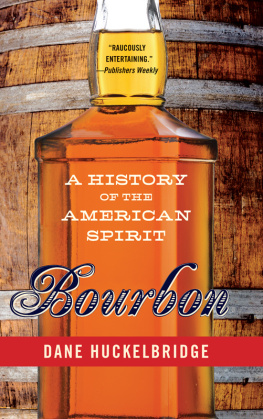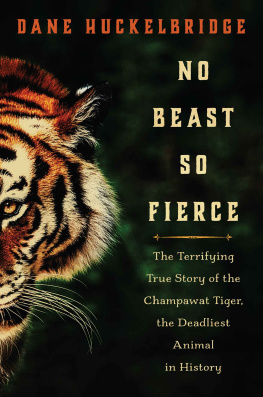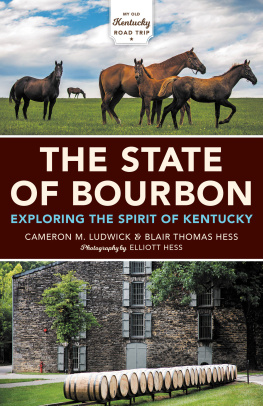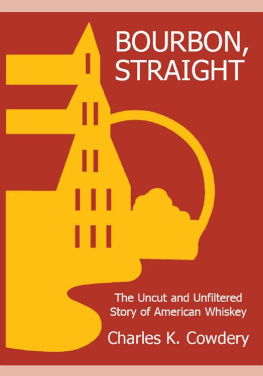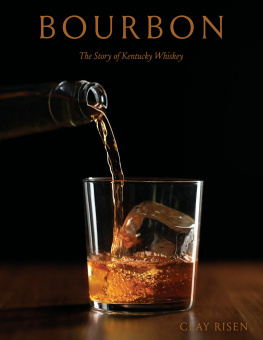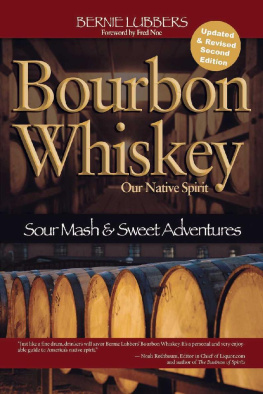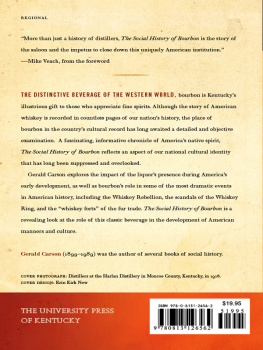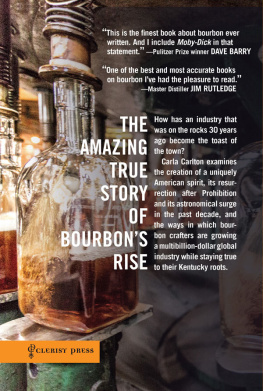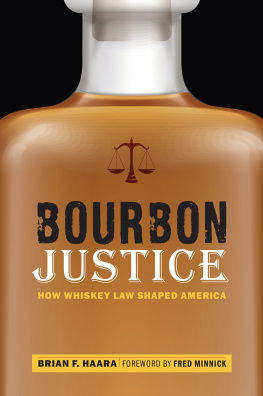Australia
HarperCollins Publishers (Australia) Pty. Ltd.
Level 13, 201 Elizabeth Street
Sydney, NSW 2000, Australia
http://www.harpercollins.com.au
Canada
HarperCollins Canada
2 Bloor Street East - 20th Floor
Toronto, ON, M4W, 1A8, Canada
http://www.harpercollins.ca
New Zealand
HarperCollins Publishers (New Zealand) Limited
P.O. Box 1
Auckland, New Zealand
http://www.harpercollins.co.nz
United Kingdom
HarperCollins Publishers Ltd.
77-85 Fulham Palace Road
London, W6 8JB, UK
http://www.harpercollins.co.uk
United States
HarperCollins Publishers Inc.
10 East 53rd Street
New York, NY 10022
http://www.harpercollins.com
DANE HUCKELBRIDGE hails from the American Middle West. He holds a degree in history as well as a certificate in Latin American studies from Princeton University. Bourbon is his first book, although his fiction and essays have appeared in various magazines and journals. He currently resides in New York City.
Visit www.AuthorTracker.com for exclusive information on your favorite HarperCollins authors
Authors Note: If youre going to enrage a sizable number of whiskey pundits along with the entire state of Tennessee, you might as well get it over with right away. After careful consideration and some deliberation, Tennessee Whiskey will henceforth be considered and referred to as a type of bourbon rather than a distinct spirit. Although the charcoal filtering of the Lincoln County Process does change its character slightly, and the moniker is indeed a clever marketing ploy, Tennessee Whiskey is essentially nothing more than a straight bourbon whiskey made in Tennessee (and contrary to popular misconceptions, bourbon does not require a Kentucky origin; it can be produced anywhere in the United States so long as corn content and aging restrictions are properly adhered to). Sorry, Uncle Jack. But somebody had to say it.
Technically Ramon hailed from the Kingdom of Aragon, which was not yet part of a unified Spain. But Ferdinand said he was having a drink with Isabella next Friday, so lets see what happens... maybe he can Castile her heart.
There is some evidence that early forms of alcohol distillation were also stumbled upon by other medieval scholars, particularly in Italys Salerno School, where general distillery was an important subject of medieval academic study. Still (no pun intended), the formulas and techniques of Ramon Llull would ultimately prove to be those that intoxicated Europe for the next several centuries.
Interesting side note: Scientists are still uncertain as to how the wild teosinte plant was first utilized, as its kernels were far tougher than modern maize, and extremely difficult to cook as a foodstuff. Some theorize that early Americans first consumed it in the form of popcorn.
The Aztecs counted among their pantheon a specific maize god named Centeotltry saying that five times fast.
One common and rather ingenious ancient method for making chicha involved chewing balls of cornmeal and spitting them into a clay or stone pot for fermentation. This process allowed naturally occurring saliva enzymes to catalyze the transformation of cornstarch into yeast-friendly maltose sugar, and would forever redefine the term backwash.
At this point, we can indeed say Spanish, as Castile and Aragon are united.
In fact, most Englishmen of that era believed water to be practically poisonous to drink and detrimental to good health, a convenient excuse for downing alcoholic drinks... well, like water.
Included among this new batch of royal charters was that issued to a little cargo ship called the Mayflower , which, in addition to Pilgrims, carried more beer in its holds than drinking water, and was destined for Virginia until North Atlantic gales blew it off course toward Cape Cod. Talk about a beer run gone sour!
Perhaps one reason for Thorpes selection may relate to his deceased manservantit appears George had in his employ back in England one of the young Indian men who came to London as part of Pocahontass entourage, and was therefore relatively familiar with Native American culture in Virginia... although perhaps not as familiar as he should have been.
Is it strange that an Englishman such as Thorpe knew how to make whiskey? Not really. The English were avid consumers of aqua vitae, which is very nearly the same thing: Both mean water of life, in Latin and Gaelic respectively. And although the Virginia colony was English in name, it had plenty of (Scots-)Irish settlers as well. As well soon see, the plantations in America were very much linked to the plantations in northern Ireland, with ships stocking up on supplies and men in Ireland before making the crossing, and indentured farmers from Ulster and the Scottish Lowlands filling the ranks. Its a safe bet that more than a few of them knew how to make whiskey, and would not have been shy about encouraging the one man with an old copper still to do so. As for the corn part, that was all Georges idea.
The word whiskey is actually derived from this older Gaelic term for the hard stuff. Both corn and rye whiskeys were frequently referred to as usquebaugh in early America.
Technically New York was still a Dutch colony at the time of its first distilleries, but the city wouldnt stay that way for much longer. The Dutch influence would survive, however, in the many windmill-friendly names that still dot the five boroughs to this day. Broadway, Brooklyn, the Bronx, Harlem, Coney Islandthey all owe their origins to Old... well, actually New Amsterdam.
Even John Adams would admit: I know not why we should blushingly confess that molasses was an essential ingredient in American independence.... Many great events have proceeded from much smaller causes. Wise words from a lifelong drinker famous for downing hard cider and beer before breakfast.
Still not convinced? Check out the bill for the party that the Founding Fathers threw at Philadelphias City Tavern in 1787 to celebrate the signing of the Constitution: They drank sixty bottles of claret, fifty-four bottles of Madeira, twenty-two bottles of porter, twelve bottles of beer, eight bottles of whiskey, eight bottles of hard cider, and seven bowls of rum punch. Divided among the fifty-five men in attendance, thats... well, a lot of liquor. Throw in the broken glasses and decanters also mentioned in the bill, and youre talking about one smashing party.
The end of the feud is generally assigned to the 1890s, although the somewhat amusing argument can be made that the bad blood continued right on up until the 1979 taping of the popular television game show Family Feud , which featured representatives of both the Hatfields and the McCoys, as well as a live pig.
The term Scots-Irish was seldom used until the mid-nineteenth century, and then only by those wishing to distinguish themselves from the Irish Catholics fleeing the Potato Famine. Two things that both the Protestant Scots-Irish and the Catholic Gaelic Irish could agree on, however: The English werent cool, and whiskey tasted delicious.
Although pioneer conditions were demanding, virgin Kentucky soil was very well suited for corn; a Kentucky farmer who planted ten acres might end up with four hundred bushels, roughly four times more than what his family and livestock would consume. With a local grain market unfriendly to sellers, it only made sense for the farmer to turn his excess corn into whiskey and send it off to be sold in distant cities where the demand was high.
Its hard to say when and why barrel charring began, but based on Harrison Halls nineteenth-century distilling manual, the practice likely started as a means of removing the rough splinters and sap bubbles from the raw oak of new barrels. After all, who wants splinter- and sap-flavored whiskey?
Next page
